Careless Love
Careless Love
Careless Love is a traditional song based on a folk melody of obscure origin, and the numerous versions of its lyrics usually feature abandoned love and heartbreak or tragic death.
What is known for certain about the song’s early history is that by 1900 it was a standard in the repertory of Buddy Bolden and his band in New Orleans. Bolden, a cornetist who played music “by ear,” adapted music he heard to create his own blend of rag-time, black sacred music, marching-band music and rural blues. Though no known recordings of his band survive and he was not the first musician to play the music that came to be called jazz, he is credited with being the first musician to popularize it and to provide a base from which it could grow.
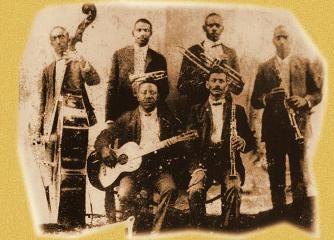
Buddy Bolden Band 1905
However, it would fall to another cornetist, William Christopher “W.C.” Handy, to ensure the survival of Careless Love. In his autobiography, Father of the Blues, W.C. Handy wrote that he first played the melody of “Careless Love” in 1892, as a young musician in his native state of Alabama. He didn’t say where he first heard the melody, only that it had come to be popular all over the South.
Careless Love
A few years later, when he was working in a brass band that was performing in Henderson, Kentucky, he heard one version of the lyrics for “Careless Love.” He recalled, “In Henderson I was told that the words of “Careless Love” were based on a tragedy in a local family, and one night a gentleman of that city’s tobacco-planter aristocracy requested our band to play and sing this folk melody, using the following words:
You see what Careless Love has done,
You see what Careless Love has done,
You see what Careless Love has done,
It killed the Governor’s only son.
We did out best with these lines and then went into the second stanza:
Poor Archie didn’t mean no harm,
Poor Archie didn’t mean no harm,
Poor Archie didn’t mean no harm –
But there the song ended. The police stepped in and stopped us. The song, they said, was a reflection on two prominent families. “Careless Love” had too beautiful a melody to be lost or neglected, however, and I was determined to preserve it.”
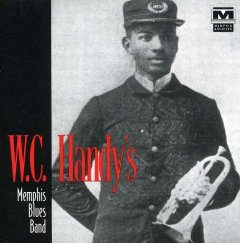
Young W.C. Handy in Memphis
It took Handy years to figure out what words to put to the folk melody to give it a place in a modern setting. Finally, in the early 1920s, he got his inspiration from an itinerant preacher he happened to hear on the corner of 45th Street and Broadway in New York City. The preacher thundered that everything had become adulterated, and it caused Handy to think the same was true for love as well. That week he went to Chicago, and while sitting in a barbershop there, he wrote the song Loveless Love, applying his own lyrics to the “Careless Love” melody with the verse in the three-line blues form.
He began with the line “Love is like a gold brick in a bunko game,” and then went on to compare loveless love to artificial food and synthetic goods.
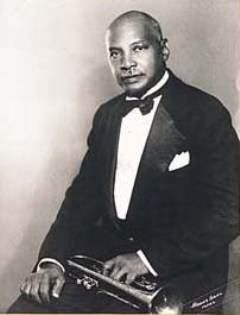
W.C. Handy
Handy completed the orchestration for Loveless Love and asked Erskine Tate, bandleader of the Vendome Orchestra, a well-known Chicago big band, to play it for him. After hearing it played, he decided it was “all right” and immediately sent a copy to the printer. He was so eager to hear the song performed that he said, “Without waiting to receive a printed copy, however, I taught “Loveless Love” to Alberta Hunter, and she sang it at the Dreamland cabaret. It made a bull’s-eye. Before Alberta reached my table on the night she introduced the song, her tips amounted to sixty-seven dollars. A moment later I saw another lady give her twelve dollars for “Just one more chorus.” I knew then and there that we had something on our hands and the later history of the song bore this out.”
Alberta Hunter, a jazz and blues singer who had risen to prominence performing in Chicago clubs, was headlining at the Dreamland Ballroom, the most prestigious venue for black entertainers at that time.
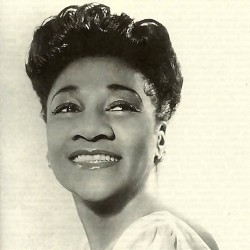
Alberta Hunter
Handy copyrighted an arrangement of Careless Love in 1926 and over time the distinctions between “Careless Love” and “Loveless Love” have become blurred. He often is listed as the composer of both songs. Jazzstandards.com, a website dedicated to the preservation of information about jazz standards, credits both “Careless Love” and “Loveless Love” to Handy for music and lyrics, but co-credits pianist Spencer Williams and Martha Koenig on “Careless Love” and trumpeter Sy Oliver on “Loveless Love.” However, Handy made no mention of co-collaborators in his autobiography, and possibly their contributions were to future arrangements of the songs.
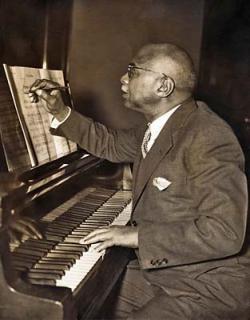
W.C Handy in New York
While Handy may not have mentioned co-collaborators, he was scrupulous about documenting the folk sources from which he adapted his songs. In 1923, writer and folklorist Dorothy Scarborough interviewed Handy when she was researching the relationship between African-American folk songs and the blues.. Handy said: "Each one of my blues is based on some old Negro song of the South, some folk-song that I heard from my mammy when I was a child. Something that sticks in my mind, that I hum to myself when I'm not thinking about it. Some old song that is a part of the memories of my childhood and of my race. I can tell you the exact song I used as a basis for any one of my blues. Yes, the blues that are genuine are really folk-songs." In the interview Handy cited several examples of African-American folk songs on which he had based his compositions, including “Careless Love” as the source for his blues ballad “Loveless Love.”
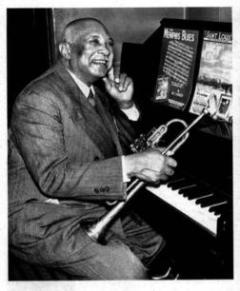
W.C. Handy
In 1925 Bessie Smith, with Louis Armstrong on trumpet, recorded “Careless Love” for Columbia Records. In 1923, Handy’s daughter, Katherine Lewis Handy, recorded “Loveless Love,” but it did not achieve much notoriety at the time. In the early 1940s the song was re-arranged for jazz and big band performances and was more successful, with a popular recording made by Billie Holiday.
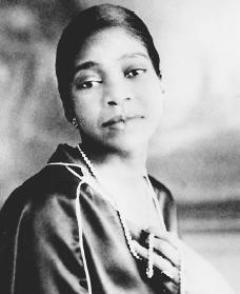
Bessie Smith
By whichever title the song is known, Handy was successful in his goal of ensuring its survival. Though most popularly performed as a blues, it has been recorded hundreds of times in a wide range of styles, including jazz, folk, country, new age, R&B, rock and pop. The traditional “Careless Love” lyrics, as sung by Bessie Smith, and Handy’s “Loveless Love” lyrics are shown below. The first verse of “Loveless Love” rarely is sung now, and Billie Holiday omitted it in her version, beginning with “Love is like a hydrant, it turns off and on...”
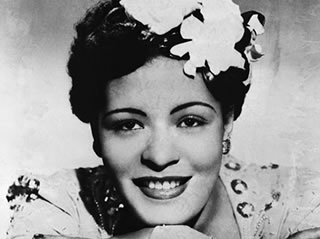
Billie Holiday
Bessie Smith Careless Lover Blues Lyrics
Love, oh love, oh careless love,
You've fly though my head like wine
You've wrecked the life
Of many a poor girl
And you nearly spoiled this life of mine
Love, oh love, oh careless love,
In your clutches of desire
You've made me break a many true vow
Then you set my very soul on fire
Love, oh love, oh careless love,
All my happiness bereft
Cause you've filled my heart with weary old blues
Now I'm walkin' talkin' to myself
Love, oh love, oh careless love,
Trusted you now it's too late
You've made me throw my old friend down
That's why I sing this song of hate
Love, oh love, oh careless love,
Night and day I weep and moan
You brought the wrong man into this life of mine
For mysins till judgement I'll atone
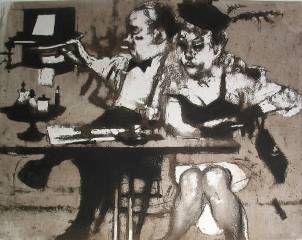
Jack Levine - Careless Love
Loveless Love W.C. Handy (Billie Holiday Version)
Love is like a hydrant turns off and on,
Like some friendships when your money's gone.
Love stands in with the loan sharks,
When your heart's in tongs.
It I had some strong wings like an aeroplane
Had some broad wings like an aeroplane.
I would fly away forever
Never to return again.
Oh love oh love oh loveless love
Has said our hearts are goldless gold
From milkless milk and silkless silk
We are growing used to soul-less souls
Such grafting times we never saw
That's why we have a pure full law
In everything we find a flaw
Even love oh love oh loveless love
Just to fly away from loveless love
Last Updated (Tuesday, 17 March 2015 15:19)








